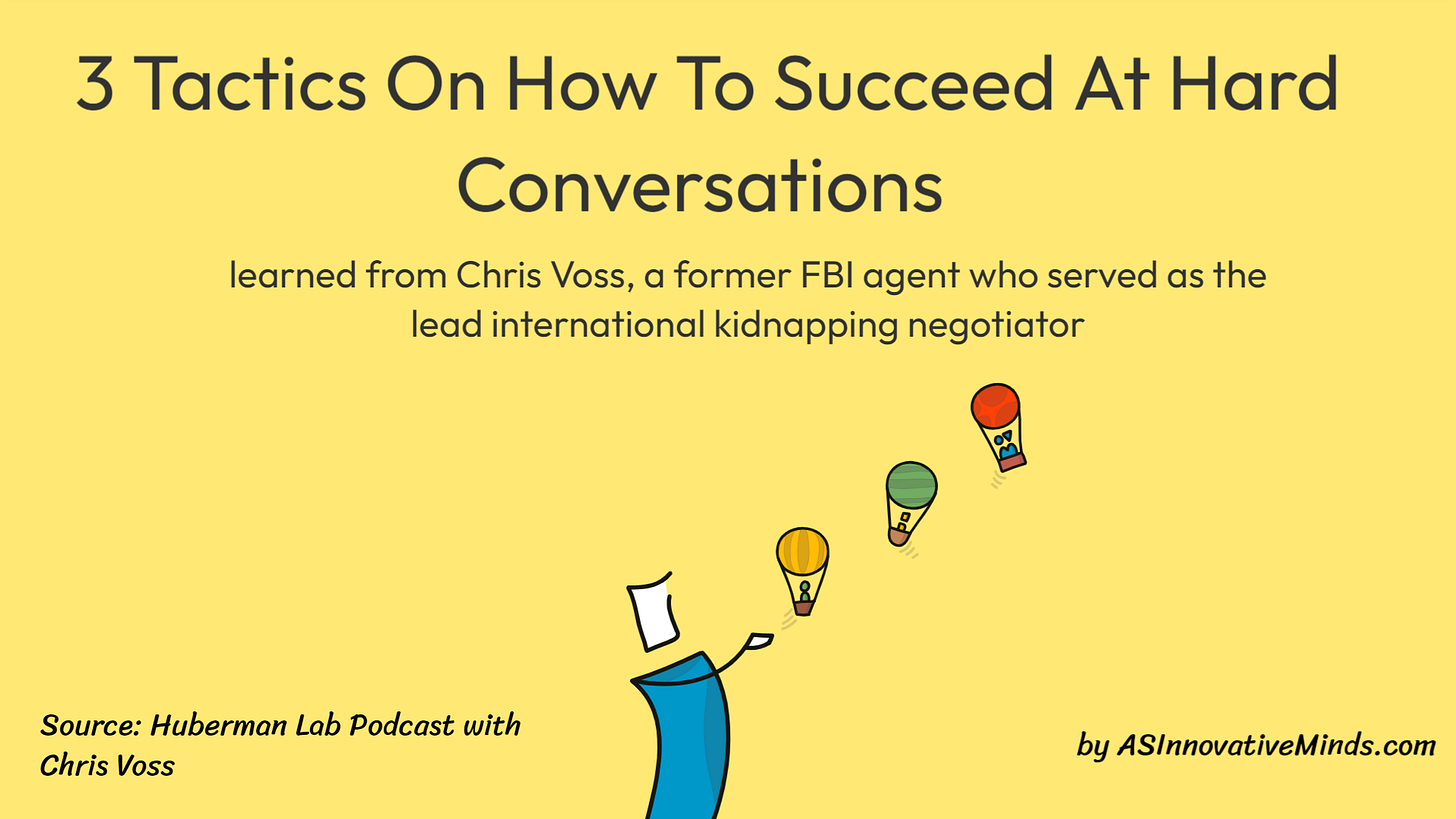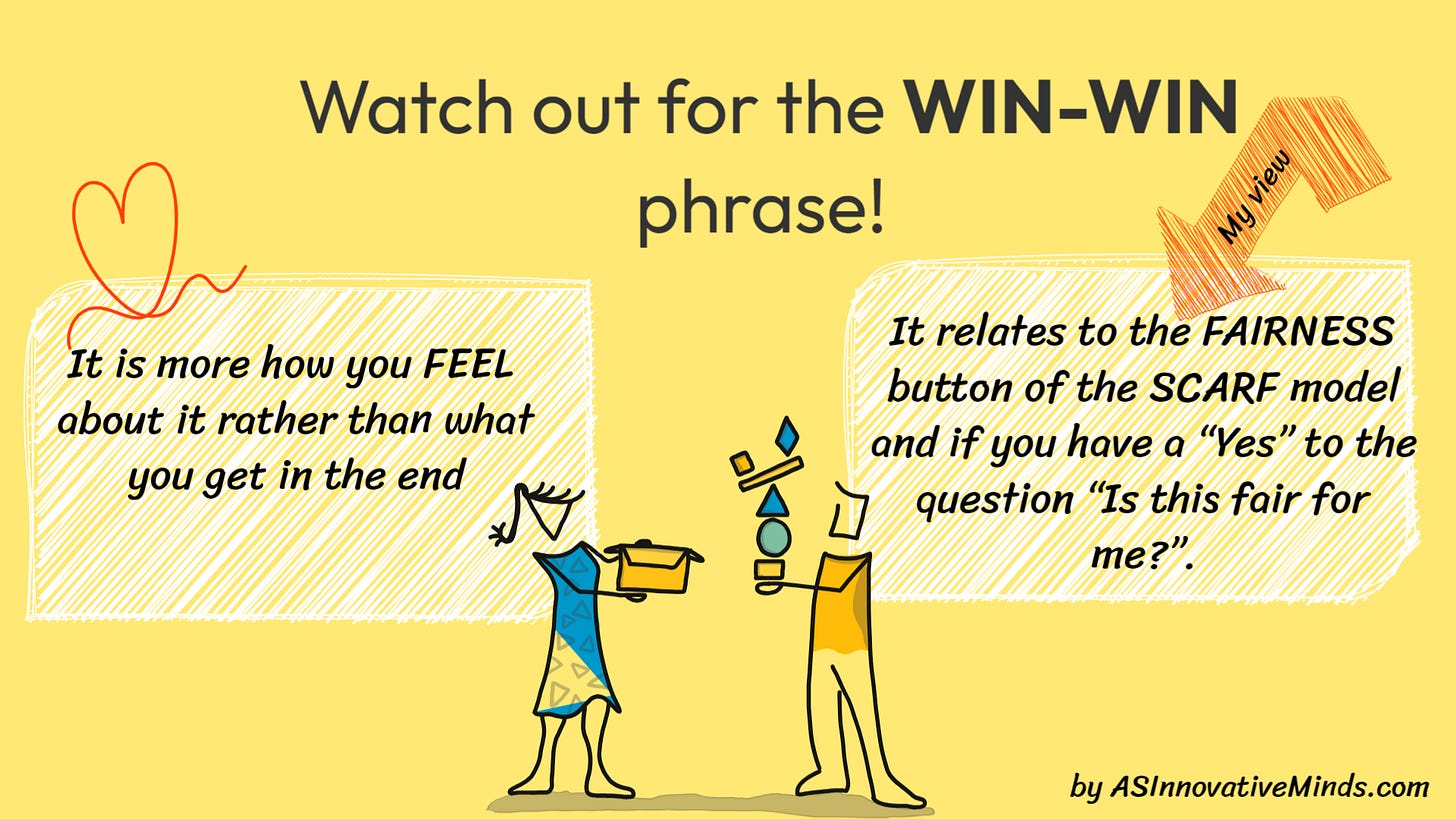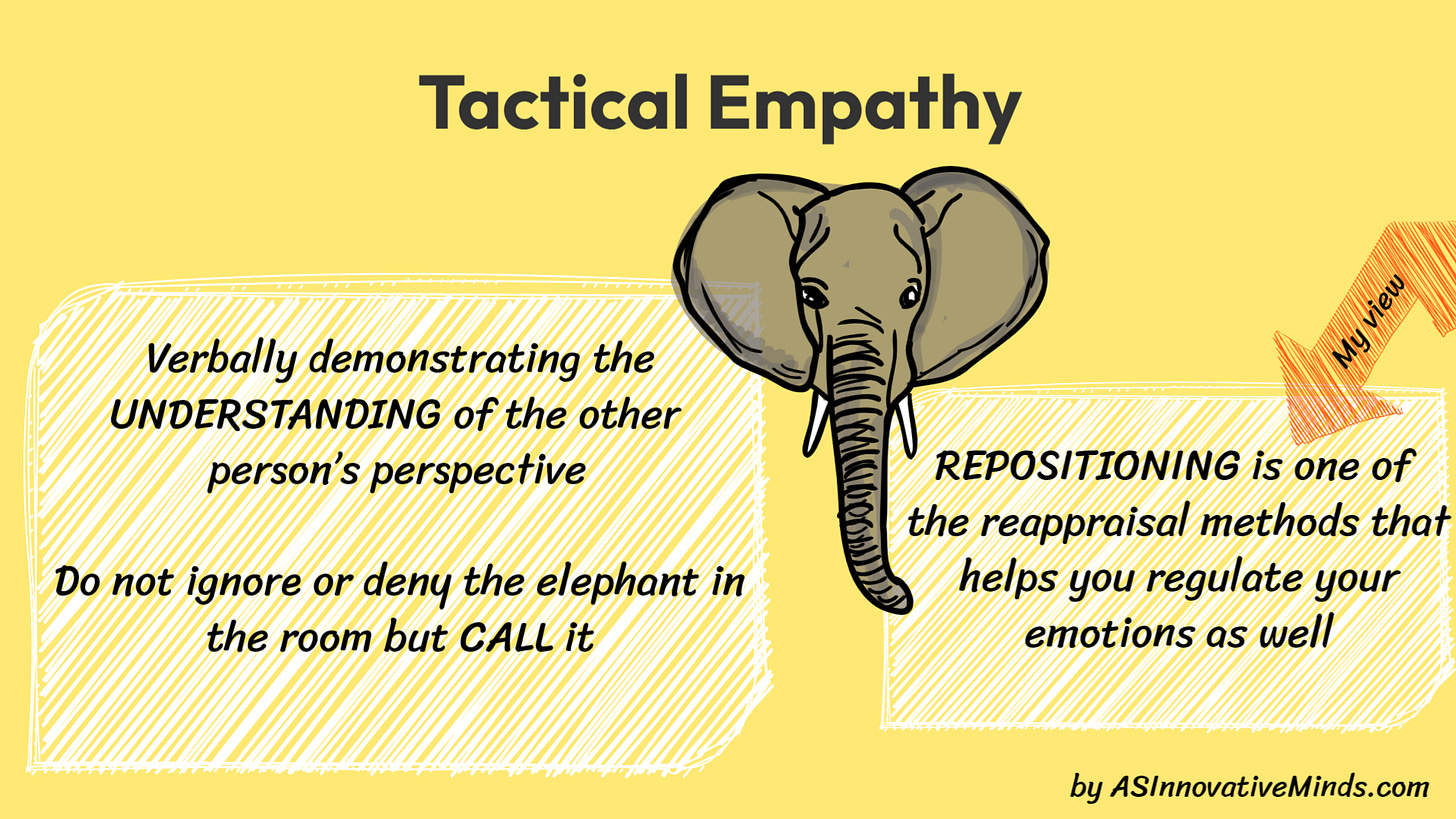3 Tactics On How To Succeed At Hard Conversations - Learned from a former FBI agent
And my personal perspective on how to apply them in facilitated sessions
I am learning and will probably learn my whole life. One of the things I like to do is make brain connections between different concepts, methods, and so on.
I am one of the fans of the Dr. Andrew Huberman podcast, a neuroscientist and professor at Stanford University. Why? Because I can relate the things I hear in his podcast with the facilitation world, my passion is to find the “why”, the neuroscience behind facilitation.
One of the podcasts I just listened to last week and I did not imagine at first I would be able to connect with the facilitation world so much is the episode called “How to Succeed at Hard Conversations” with Chris Voss. Chris Voss is a former Federal Bureau of Investigation (FBI) agent who was the lead negotiator in many high-risk, high-consequence cases.
I did many notes and in this article, I will share one part of them, the ones related to tactics, while in the next one, I will share the ones related to powerful questions.
I added my personal perspective at each point, sharing my view from a Neuromindfulness Coach's eye.
Watch out for the WIN-WIN phrase!
The concept is not wrong as it means that all sides shall feel good about the outcome. It is just about taking care of the intention behind and in the end, it is more how you feel about it rather than what you get in the end.
Personal perspective: “How you feel about it” is not necessarily about feelings but more about gut feelings and whether you find the agreement FAIR for you. It relates to the FAIRNESS button of the SCARF model and if you have a “Yes” to the question “Is this fair for me?”.
Tactical Empathy - How to help the other person feel heard?
Say this: “I will describe to you what my best guess is on your perspective” - actually I will find out what your position is and I will be then able to understand your point of view.
I will take a guess, you will correct me. Correcting is a satisfying thing to do.
It is more about hypothesis testing.
Chris Voss also connects this to tactical empathy. He talked about this term defining it as “verbally demonstrating the understanding of the other person’s perspective” which does not require as much compassion, sympathy, agreement, or disagreement. He also says “Empathy is about the transmission of information, compassion is the reaction to the transmission” and “Do not ignore or deny the elephant in the room but call it”. Articulating the other person’s perspective is a powerful way of communicating and helping the other person feel heard.
Personal perspective:
It is a strong way to help the other person feel heard. One of the top 5 situations when people get stressed and their amygdala gets hijacked is when they have the impression they are not heard. So, this method avoids this, which is very powerful.
To correct somebody helps raise their STATUS from the SCARF model. They have a sense of importance and appreciation coming out of this, while dopamine is released and happiness comes around as well. So a positive atmosphere is created.
Maybe it is a good idea to ask for permission to do so as well before you start describing their perspective, to add positive AUTONOMY to the blended happiness cocktail. Because people with a psychological need to be asked what is their opinion and what is their perspective, they might say “no” to this which is fine and gives them the momentum to express their thoughts first if they want to.
For persons who are a little more introverted, this will help them not start from zero, and have something to grasp before they need to say something. This adds a comfortable sensation.
Trying to understand the other person’s perspective is also one of the reappraisal types that D.Rock writes about in his book, “Your Brain At Work”, it is called “repositioning”.
MIRORRING with the last 1-3 words instead of asking to repeat or “What did you mean by that"?”
Instead of asking “Could you say more about..?” repeating the last 1-3 words that a person said might help them more to develop their idea, put together their thoughts, and explain more.
Personal perspective: I was taught to rephrase what people said so that they feel heard. After some trials, I found out that people with a high value of their opinions hate this and the result was the opposite. After I learned about PCM, I know now WHY this happens when thinking of different personality types and their psychological needs. Mirroring with words works really nice in one-to-one sessions, I can only confirm this.
Bottom lines:
Finding topics to learn in different areas is something that intrigues me and makes me search for more and more inspiration. Learning from Chris Voss, a great negotiator who has lots of wisdom to share, opened up another horizon of AHA moments that I wanted to share and draw. Stay tuned for the next part of it!






